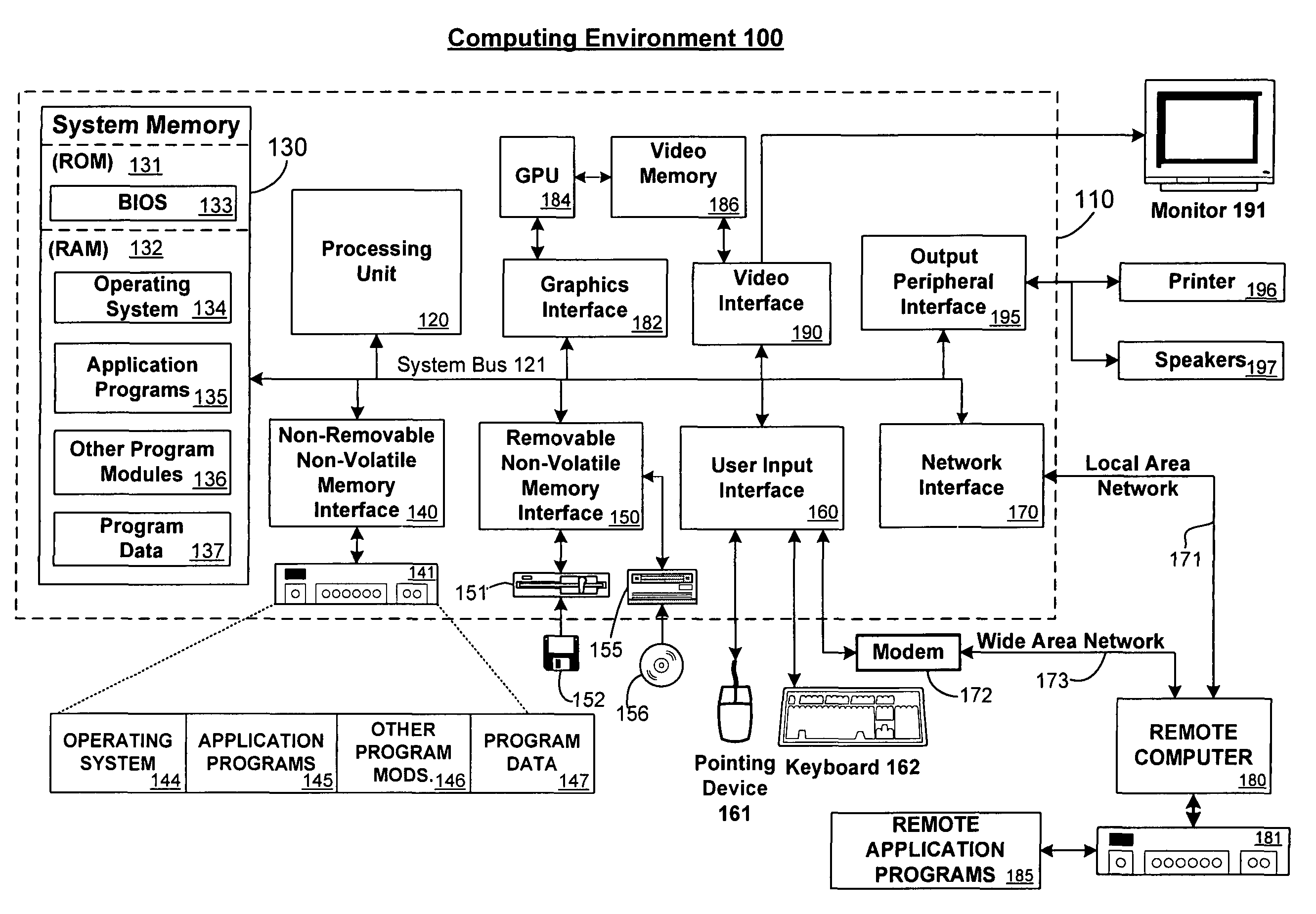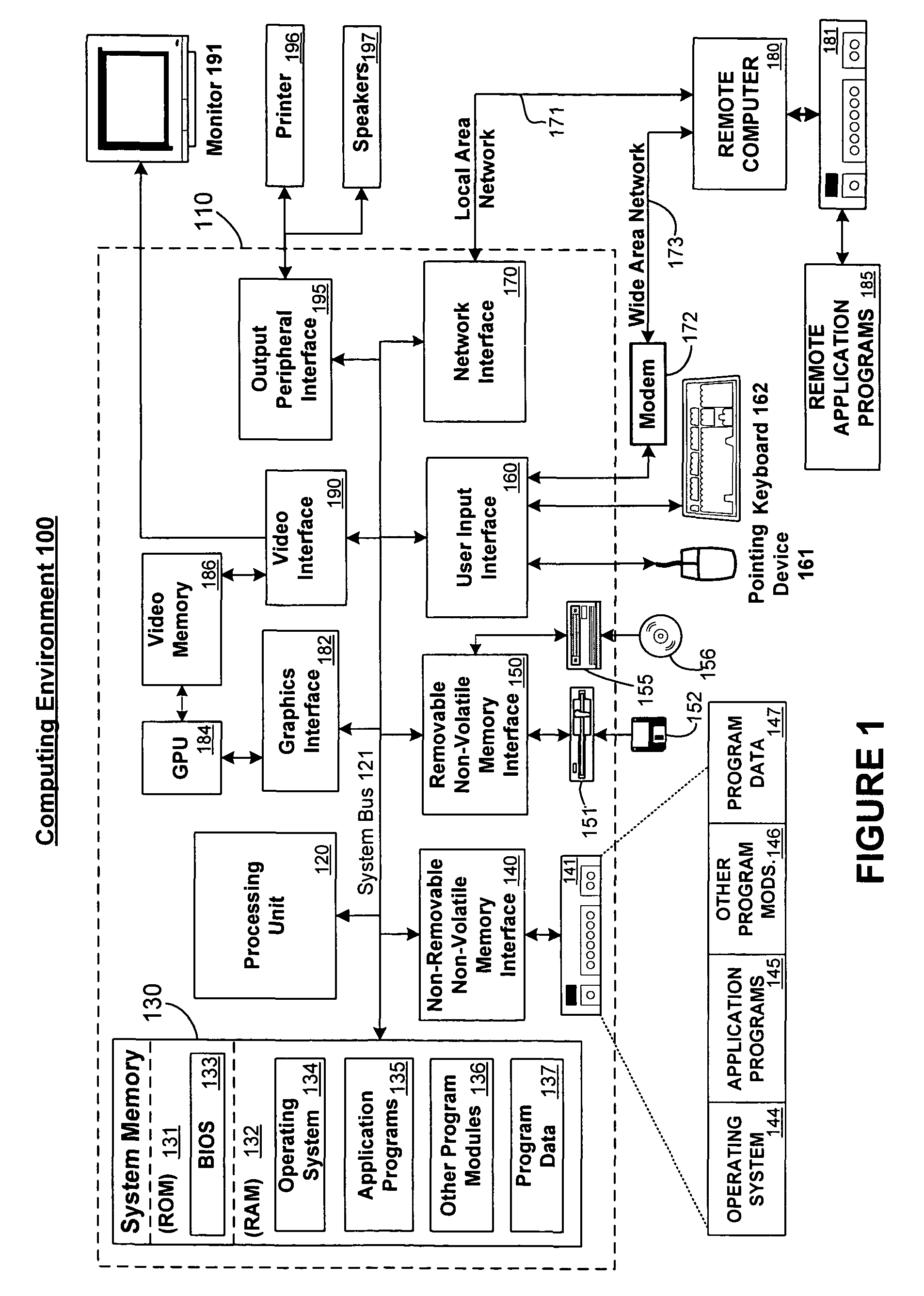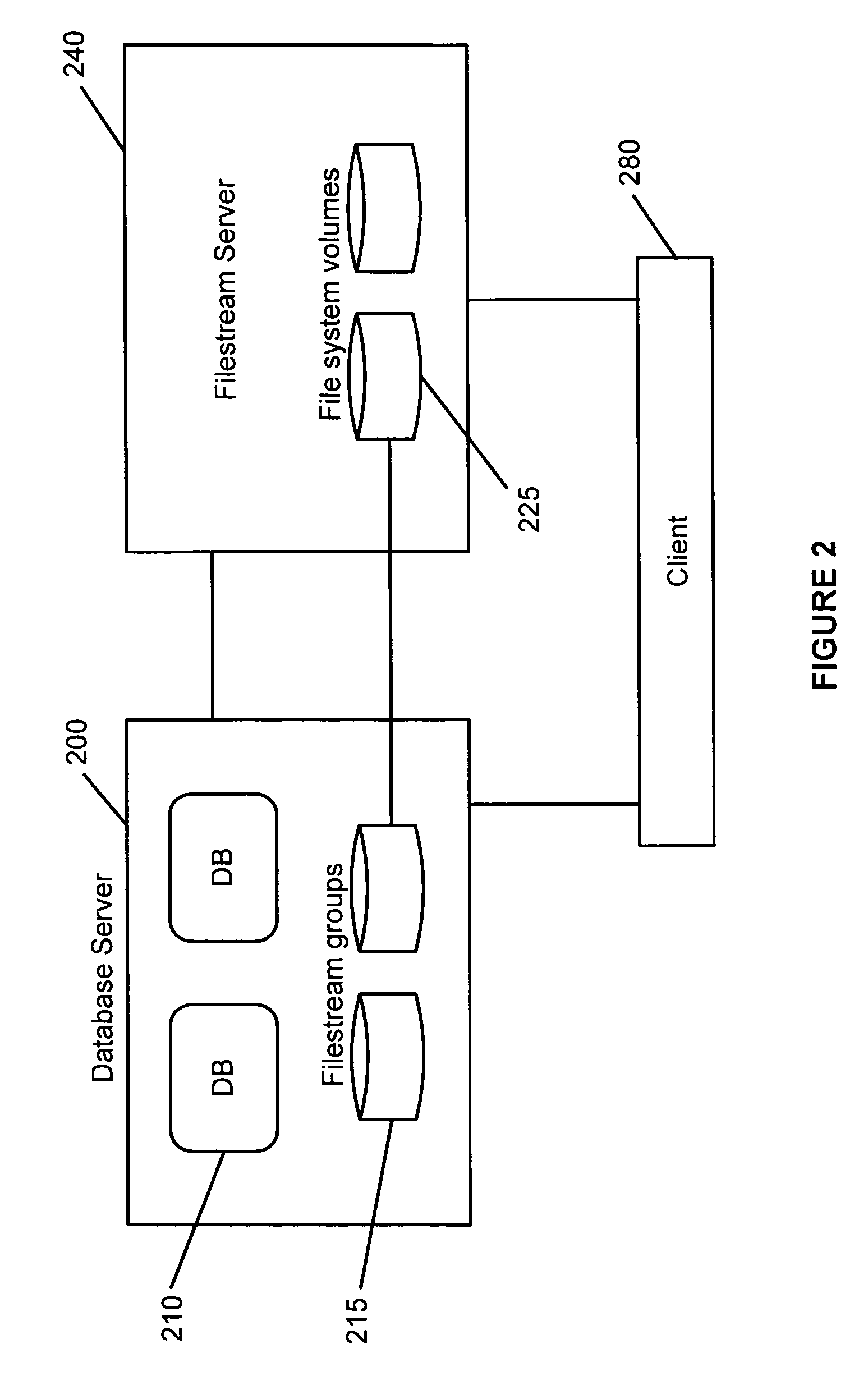Maintenance of link level consistency between database and file system
a file system and database technology, applied in the field of database management, can solve the problems of difficult to find files, increase the difficulty of ensuring the consistency of link levels, and make keeping track of files in the file system an extremely difficult task
- Summary
- Abstract
- Description
- Claims
- Application Information
AI Technical Summary
Benefits of technology
Problems solved by technology
Method used
Image
Examples
example embodiments
[0041]An embodiment provides a mechanism for maintaining transactional link-level consistency between a database column (e.g., structured data) and its corresponding FILESTREAM data (e.g., unstructured data) in the file system. As used herein, transactional link-level consistency corresponds to a state where a database, such as for example a SQL database or the like, has an accurate status of files and directories in terms of the files' and directories' names, locations, etc. For example, if a database believes that a file or directory exists with a given name, then the file or directory must exist in the file system, with the given name. Likewise, if the database does not believe a file or directory to exist, then the file or directory must not exist in the file system. The types of file and / or directory operations that may be kept transactionally consistent in an embodiment may include, for example, creation, deletion and / or renaming. As noted above, a loss of transactional link-l...
PUM
 Login to View More
Login to View More Abstract
Description
Claims
Application Information
 Login to View More
Login to View More - R&D
- Intellectual Property
- Life Sciences
- Materials
- Tech Scout
- Unparalleled Data Quality
- Higher Quality Content
- 60% Fewer Hallucinations
Browse by: Latest US Patents, China's latest patents, Technical Efficacy Thesaurus, Application Domain, Technology Topic, Popular Technical Reports.
© 2025 PatSnap. All rights reserved.Legal|Privacy policy|Modern Slavery Act Transparency Statement|Sitemap|About US| Contact US: help@patsnap.com



